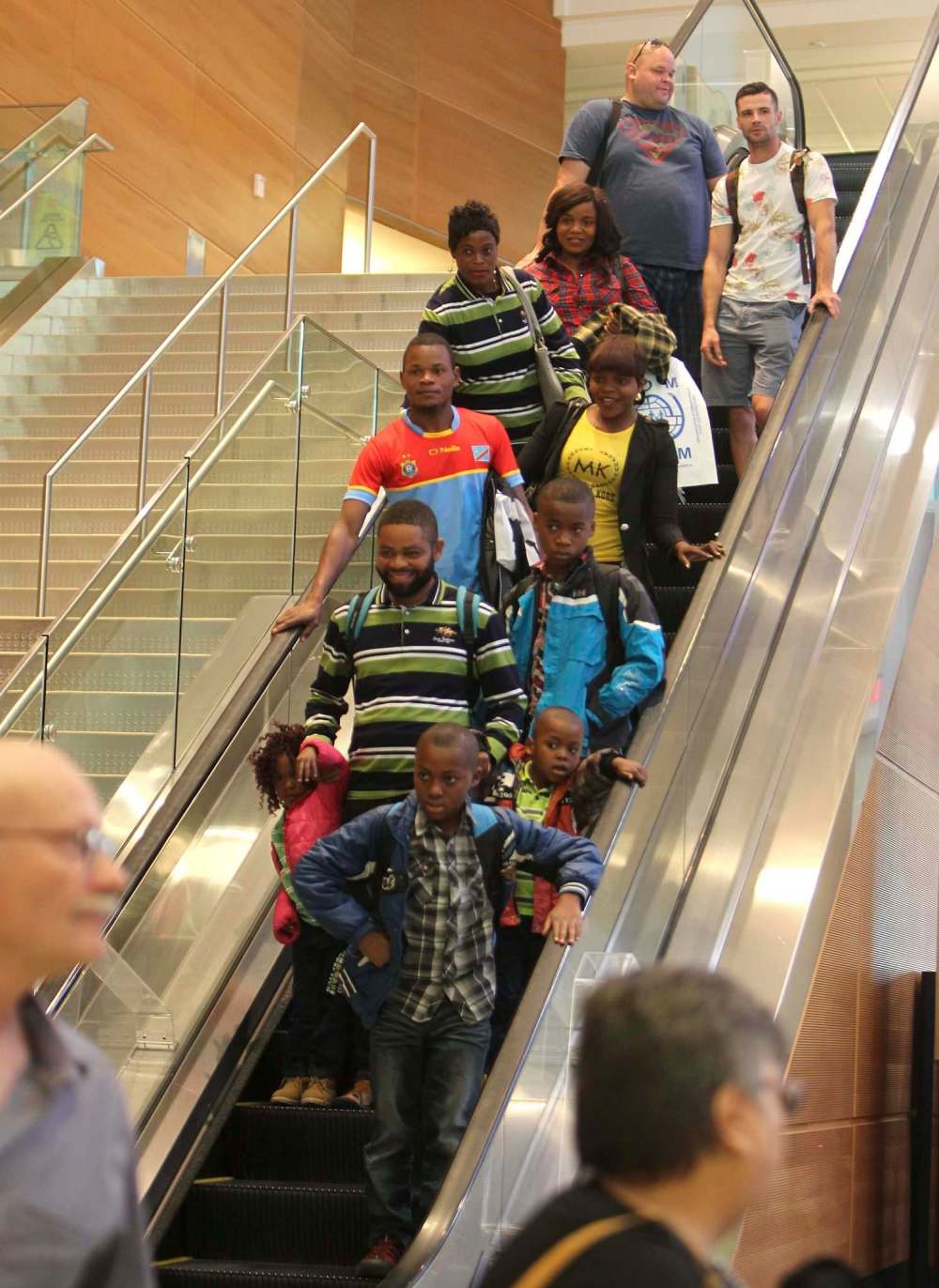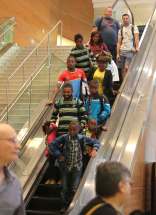Churches ease newcomers’ transition
Read this article for free:
or
Already have an account? Log in here »
To continue reading, please subscribe:
Monthly Digital Subscription
$0 for the first 4 weeks*
- Enjoy unlimited reading on winnipegfreepress.com
- Read the E-Edition, our digital replica newspaper
- Access News Break, our award-winning app
- Play interactive puzzles
*No charge for 4 weeks then price increases to the regular rate of $19.00 plus GST every four weeks. Offer available to new and qualified returning subscribers only. Cancel any time.
Monthly Digital Subscription
$4.75/week*
- Enjoy unlimited reading on winnipegfreepress.com
- Read the E-Edition, our digital replica newspaper
- Access News Break, our award-winning app
- Play interactive puzzles
*Billed as $19 plus GST every four weeks. Cancel any time.
To continue reading, please subscribe:
Add Free Press access to your Brandon Sun subscription for only an additional
$1 for the first 4 weeks*
*Your next subscription payment will increase by $1.00 and you will be charged $16.99 plus GST for four weeks. After four weeks, your payment will increase to $23.99 plus GST every four weeks.
Read unlimited articles for free today:
or
Already have an account? Log in here »
Hey there, time traveller!
This article was published 11/07/2018 (2708 days ago), so information in it may no longer be current.
From the early days of the Red River Settlement, churches have played a pivotal role in welcoming newcomers.
Settlers arriving in Red River carts or by train would find friendship and a spiritual home in 19th-century churches such as Saint Boniface Roman Catholic Cathedral, St. John’s Anglican, Knox United and Grace Methodist.
In recent decades, a rising tide of secularism has diminished the size of congregations and the influence of churches.

But don’t tell that to the newcomers who continue to arrive in Manitoba.
A poll released Monday by the Angus Reid Institute shows 65 per cent of recent newcomers to Canada say they connect with churches. They describe warm welcomes from church people who are already established in the community and are willing to befriend newcomers, helping them learn English and find jobs.
It is uncommon to hear praise about faith-based groups these days. St. Boniface Hospital and its board are criticized for refusing to participate in medical assistance in dying (MAID). The Supreme Court of Canada ruled last month against Trinity Western University and its proposed law school that would include a mandatory community covenant that binds students to abstinence from sex outside of heterosexual marriage.
Faith-based groups seeking government summer-jobs grants were frozen out this summer by a new values attestation that requires agreement to the government’s creed on reproductive rights. And there are ongoing disputes about government payouts for people who say they were physically or sexually abused at Christian-based residential schools.
Amid the chorus of criticisms, it is easy to lose sight of the good churches continue to do. But the newcomers know.
In a typical but generally unheralded scenario playing out in churches throughout Manitoba, several volunteers form a committee to sponsor a family stranded in a refugee camp. They do the copious necessary paperwork that eventually leads to a joyful meeting at the Winnipeg airport when “our family” finally descends the escalator, met by a throng of church people waiting with smiles, hugs and signs adorned with such buoyant declarations as “Welcome to your new life!”
Amid the chorus of criticisms, it is easy to lose sight of the good churches continue to do. But the newcomers know.
Typically, the hosting church has paid the rent on an apartment for one year, furnished it with items donated by church members and collected $10,000 as a gift to give the family a head start.
Throughout the first year, a support circle of several church volunteers keeps close contact with the family to help with job searches, school integration and essential Manitoba knowledge, such as the necessity of long underwear.
Cynics critical of organized religion — and they abound — might ascribe a hidden motivation, guessing that churches’ warm welcome to newcomers is rooted in an evangelical push to refill the pews.
The truth is, though, that most Manitoba churches are currently selecting Syrian families from Muslim backgrounds, even though the Christian churches know Muslim newcomers are most likely to eventually connect with people of their own background and attend Manitoba mosques.
The motivation of churches is to help people, not to find people to convert.
Cynics critical of organized religion– and they abound — might ascribe a hidden motivation, guessing that churches’ warm welcome to newcomers is rooted in an evangelical push to refill the pews. The truth is, though, that most Manitoba churches are currently selecting Syrian families from Muslim backgrounds.
And working with newcomers is only one of many unsung ways churches contribute to their communities. The list includes helping the homeless, running soup kitchens, offering space to community groups, hosting concerts and operating nursery schools and daycares.
From the early days of the settlement that became Winnipeg, churches have been hubs of social connectedness in the community. It’s a role immediately appreciated by newcomers, and perhaps overlooked by others among us.







